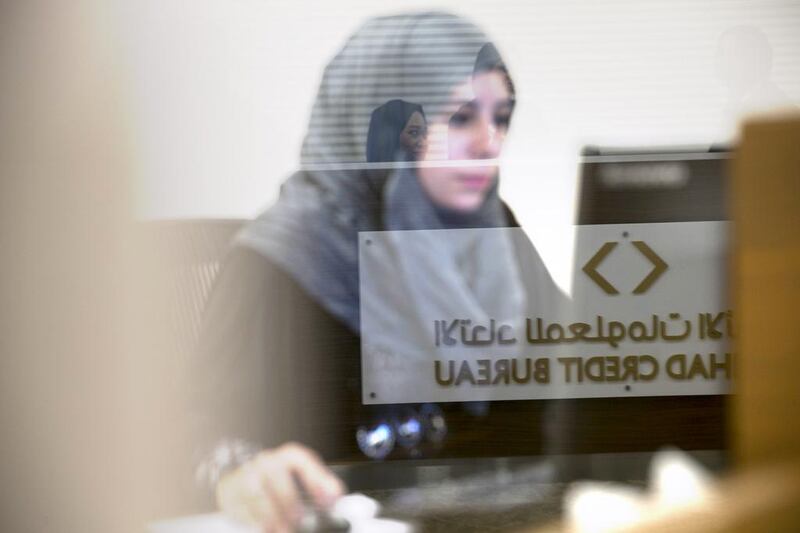Small and medium-sized businesses, regarded by many banks as unreliable debtors, often complain about being unable to tap financing.
While banks have been stepping up lending to SMEs because the margins they get are higher than those they get from less risky big businesses, the nation’s new Al Etihad Credit Bureau will soon be able to give SMEs credit reports – ratings that may make banks more willing to give them loans.
“At this stage it’s too early to say how the credit bureau will actually affect the SMEs, but it’s a core component of our development in 2015,” said Marwan Lutfi, the chief executive of the bureau.
“What banks will be looking at normally is the credit history of the founders behind the SME. But SMEs also require slightly more objective analysis and I think in that sense there has to be slightly more development. It’s not just a simple data report that will give the right decision- making ability for these institutions. So SMEs will require further development. We do have a lot of ideas in mind but I think it’s too early at this stage to discuss properly.”
While SMEs represent almost 92 per cent of registered firms in the UAE, they account for about 4 per cent of total bank lending. A s urvey this month by Souqalmal.com, a Dubai-based personal finance website, found that 31 per cent of SMEs were self-funded, the most popular option. This was followed by taking out a bank loan, borrowing from friends and family, and finding strategic investors.
UAE policymakers have been increasingly counting on smaller businesses to play a key role in the development of the Emirates economy. SMEs account for 86 per cent of the workforce in the private sector, according to the Ministry of Economy. Nearly 300,000 companies can be classified as part of the SME sector, ministry data showed. The UAE companies law, which decrees that Emiratis must control 51 per cent of local businesses, has often been cited as an obstacle to growth, despite a number of free trade zones in the countries where companies can avoid these regulations.
Even though SMEs still account for a small proportion of overall lending, recent quarterly results of the big lenders show that they have been growing their SME loan book because that’s where there is still profit to be made. Still, the credit bureau is keen to help boost this vital part of the economy, Mr. Lutfi said.
While the credit bureau opened its doors this week to individual account holders who want to get hold of their credit report, companies in the UAE will be able to access credit reports next year, he said.
“There will be a credit report for SMEs, which is a common credit report which apply for any company, whether it is an SME or not, which includes the financial obligations of that company,” Mr. Lutfi said. “But I think the most important thing actually when you talk about SMEs is ‘what if this company does not have any credit history?’ I think that’s the most important thing.”
mkassem@thenational.ae
Follow The National's Business section on Twitter





